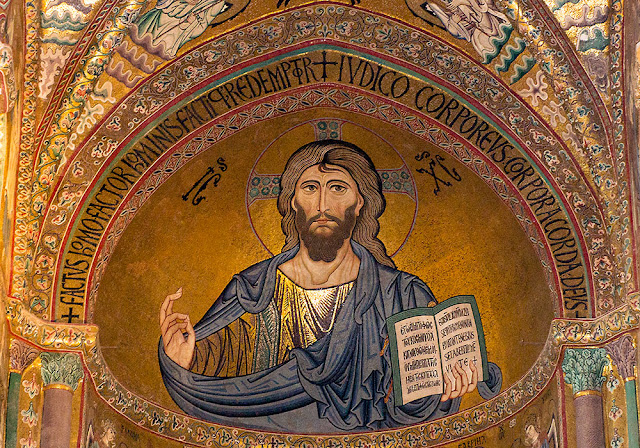Yahweh as the Logos of Elohim
Few books have as famous, memorable, or moving beginning as the Gospel of John:
In the beginning was the Word,
and the Word was with God,
and the Word was God.[1]
While textual complexities are worth discussion as to the latter part of the verse – whether it should be read that the Word (that is, the Logos) was God or rather a God (or even simply translated as divine),[2] Latter-day Saints (with a restored knowledge of the nature of God) can understand all applicable meanings to be true. What is significant, however, is how the language John here employs was used by contemporary writers – specifically, Philo of Alexandria.
Philo of Alexandria was a Jewish writer living in Egypt between c. 20 BC – AD 50. Although he used Hellenistic language, it appears evident that he was trained to reflect a more ancient understanding of Judaism that believed in two gods – the supreme Father El, and His Firstborn who bore the divine name Yahweh.[3]
On one occasion, when asked about the creation of man in Genesis, Philo remarked that:
For nothing mortal can be made in the likeness of the most high One and Father of the universe but (only) in that of the second God (deuteron theon), who is his Logos.[4]
Philo specifically describes the second God and Firstborn of El as the Logos – the exact same word used by the Apostle John to describe Jesus. Other writings of Philo identify the Logos as involved in the creation, the firstborn of the sons of God, leader of the angels, and mediator between God and man.[5] Each of these titles would be used by John and the early Christians to describe Jesus Christ.
Philo of Alexandria’s theology differed in many respects from the restored gospel, and he never became a Christian, but his writings may help contextualize how John 1:1 would have been read anciently. Rather than stating that Jesus and the Father were the same god, as many modern Christians might assume, John likely drew on this imagery of the ancient Israelite tradition (of which Christianity would have seen itself as a perfect encapsulation of) of two Gods in heaven – thus, perhaps this verse could be idiomatically understood as:
In the beginning was the Logos, Yahweh,
and the Logos was with El,
and the Logos was a God.
[1] From the English Standard version (ESV).
[2] See Jackson Abhau, "John 1," In New Testament Minute: John, edited by Taylor Halverson, vol. 4 (Springville, UT: Scripture Central, 2022), 1.
[3] For excellent studies on the matter, see Peter Schäfer, Two Gods in Heaven: Jewish Concepts of God in Antiquity, translated by Allison Brown (Princeton, NJ: Princeton University Press); Alan F. Segal, Two Powers in Heaven: Early Rabbinic Reports about Christianity and Gnosticism (Waco, TX: Baylor University Press, 2012); Margaret barker, The Great Angel: A Study of Israel’s Second God (Louisville, KY: Westminster John Knox Press, 1992).
[4] Cited in Schäfer, Two Gods in Heaven, 63.
[5] See Schäfer, Two Gods in Heaven, 62–64.


.jpg)
Comments
Post a Comment
Thoughtful comments are welcome. All comments are moderated.